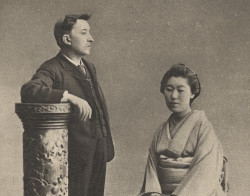
January 14, 2010
Japanomatopoeia
Originally published on metropolis.co.jp on January 2010 Meaning: A strong feeling of hunger. Usually used in the form onaka ga peko-peko da. Example: 朝ごはんを食べなかったので、お腹がぺこぺこだ; Asa gohan o tabenakatta node, onaka ga peko-peko da; I didn’t eat breakfast this morning so I’m starving. Source: Giongo/Gitaigo: A Practical Guide to Mimetic Expressions Through Pictures, by Akutsu Satoru […]
By Metropolis
Originally published on metropolis.co.jp on January 2010

Eparama Tuibenau
Meaning: A strong feeling of hunger. Usually used in the form onaka ga peko-peko da.
Example: 朝ごはんを食べなかったので、お腹がぺこぺこだ; Asa gohan o tabenakatta node, onaka ga peko-peko da; I didn’t eat breakfast this morning so I’m starving.
Source: Giongo/Gitaigo: A Practical Guide to Mimetic Expressions Through Pictures, by Akutsu Satoru (ALC Shuppan, 1994)







